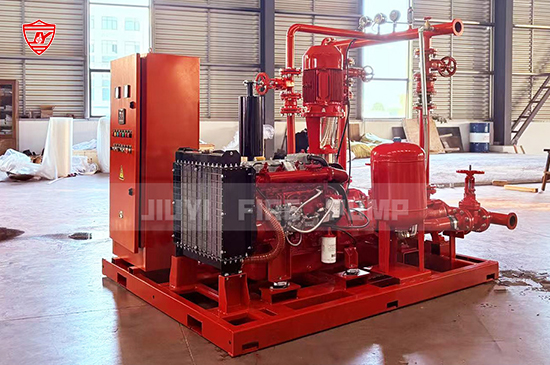When selecting a fire pump for a fire protection system, one critical factor to consider is whether the pump is UL-listed or non-UL. UL (Underwriters Laboratories) is a globally recognized safety certification organization that establishes strict performance and reliability standards. Fire pumps that meet UL’s stringent requirements provide an added level of confidence in safety and compliance. But what are the exact differences between UL-listed and non-UL fire pumps? Let’s break it down.

UL-listed fire pumps undergo rigorous testing to ensure they meet safety and performance standards. They are evaluated based on NFPA 20 (Standard for the Installation of Stationary Fire Pumps for Fire Protection) and other industry regulations.
Third-Party Certification: Verified and tested by UL to meet strict industry standards.
Consistent Performance: Ensures reliability under fire conditions, reducing failure risks.
Insurance & Compliance Benefits: Many insurance providers and regulatory authorities require UL-listed pumps.
Durability & Testing: Subjected to endurance and pressure tests to verify operational safety.
Non-UL fire pumps are manufactured without undergoing UL certification testing. While they can still be effective in fire protection, they lack the official verification of performance, safety, and durability that UL certification provides.
More Cost-Effective: Generally less expensive than UL-listed pumps.
Flexible Applications: Suitable for regions or industries where UL certification is not mandatory.
Manufacturer-Specific Standards: Quality and reliability depend on the manufacturer's internal testing.
The choice between UL-listed and non-UL fire pumps depends on:
✔ Regulatory Requirements – If local fire codes or insurance policies require UL certification, a UL-listed fire pump is necessary.
✔ Budget Considerations – Non-UL fire pumps can be more affordable but may not meet certain compliance needs.
✔ Project Type – High-risk buildings (hospitals, data centers, industrial facilities) often require UL-listed pumps.
UL-listed fire pumps provide a higher level of assurance in fire safety, offering reliable performance under emergency conditions. While non-UL fire pumps may be sufficient for some applications, they lack the standardized testing and compliance benefits of UL certification. When investing in a fire protection system, choosing the right fire pump can make a life-saving difference.